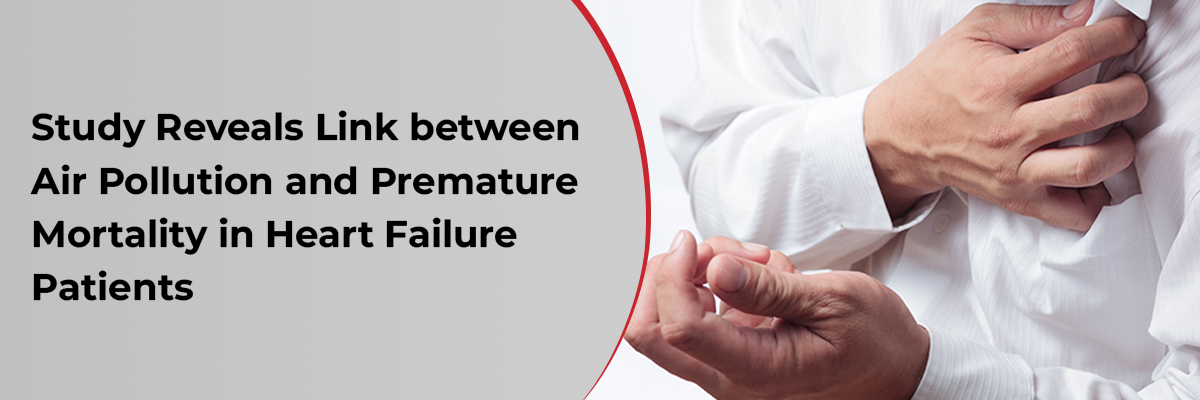
 IJCP Editorial Team
IJCP Editorial Team
Study Reveals Link between Air Pollution and Premature Mortality in Heart Failure Patients
In a recent study, researchers have discovered a significant association between air pollution and early death among individuals with heart failure. The World Health Organization (WHO) has previously highlighted air pollution as the most severe environmental hazard to human health. Notably, this includes particulate matter (PM)2.5 and PM1, primarily originating from vehicle exhaust emissions and industrial odors.
The study employed a time-stratified case-crossover module, utilizing participants as their own controls. For each participant, the levels of pollutants on the day when a death occurred (e.g., Tuesday) were compared with the pollutant levels on the same day of the week in other weeks of the same month where no deaths were recorded (e.g., all remaining Tuesdays). The analysis was also conducted for pollution levels one day and two days prior to the occurrence of a death. All analyses were adjusted to account for various factors that could impact the relationships, such as the time of year, day of the week, weather conditions (temperature, humidity, atmospheric pressure), and long-term trends like population demographics.
Throughout the five-year duration of the study, a total of 87,990 deaths were documented, with 7,404 attributed to heart failure. Notably, a 10 mg/m3 increase in PM2.5 and PM10 was linked to a 10% and 9% higher risk of death due to heart failure on polluted days. Similar risks of heart failure mortality were also observed one and two days following exposure to smog.
The study findings shed light on the detrimental impact of air pollution on heart failure patients, further emphasizing the urgent need for effective measures to mitigate pollution levels. The presence of fine particulate matter in the air has been identified as a contributing factor to increased mortality rates in this vulnerable population.
Dr. Lukasz Kuzma, the study author from the Medical University of Bialystok, Poland, highlighted the potential of reducing air pollution in preventing the deterioration of heart failure and stated, "The results clearly indicate that taking measures to decrease air pollution holds the promise of averting the progression of heart failure." He further added, “Ensuring the well-being of vulnerable populations, particularly during the winter season, should be an essential component of clinical care. This entails healthcare professionals collaborating with patients to monitor air quality and select suitable periods for engaging in outdoor activities.”
As public health concerns mount, addressing air pollution and its adverse effects on heart health becomes a crucial priority. Implementing strategies to reduce pollution levels and improve air quality can play a pivotal role in safeguarding the well-being of heart failure patients and the wider population.

IJCP Editorial Team
Comprising seasoned professionals and experts from the medical field, the IJCP editorial team is dedicated to delivering timely and accurate content and thriving to provide attention-grabbing information for the readers. What sets them apart are their diverse expertise, spanning academia, research, and clinical practice, and their dedication to upholding the highest standards of quality and integrity. With a wealth of experience and a commitment to excellence, the IJCP editorial team strives to provide valuable perspectives, the latest trends, and in-depth analyses across various medical domains, all in a way that keeps you interested and engaged.










.jpg)








.jpg)

Please login to comment on this article